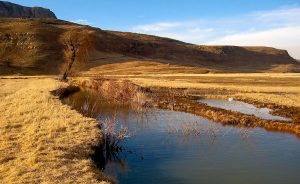 To achieve development and environmental goals simultaneously, restoration projects may be designed to also generate employment. The implementation of such policies confronts tensions between the two goals and disconnects across policy levels. Evaluating the impacts of existing examples can yield important lessons for future design.
To achieve development and environmental goals simultaneously, restoration projects may be designed to also generate employment. The implementation of such policies confronts tensions between the two goals and disconnects across policy levels. Evaluating the impacts of existing examples can yield important lessons for future design.
This study evaluates the impact of a wetland restoration program in South Africa, focusing on poverty outcomes, and compares local achievements and challenges with the intended mission of the program. It conducts in-depth interviews, household surveys and focus group discussions. Strengths of the program include focusing on relatable concepts (such as wetlands, instead of ecosystem services) and initial efforts to document the ecosystem to restore, to support negotiations for securing funding. Lessons for future design include assessment of prospective career paths for employees and securing a continuous flow of funding that also covers essential management tasks.
See publication at Journal of Environmental Planning and Management
Read full text (accepted version)
